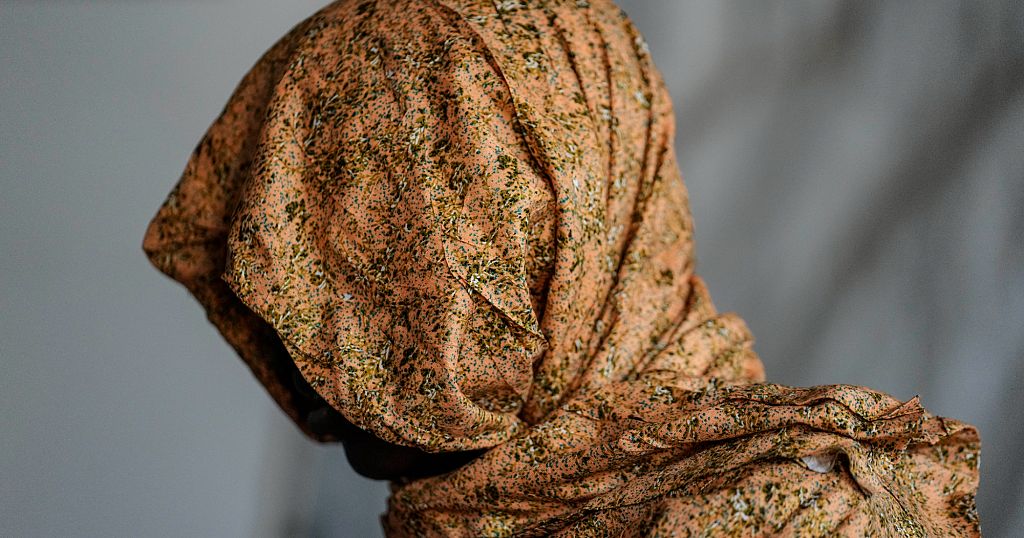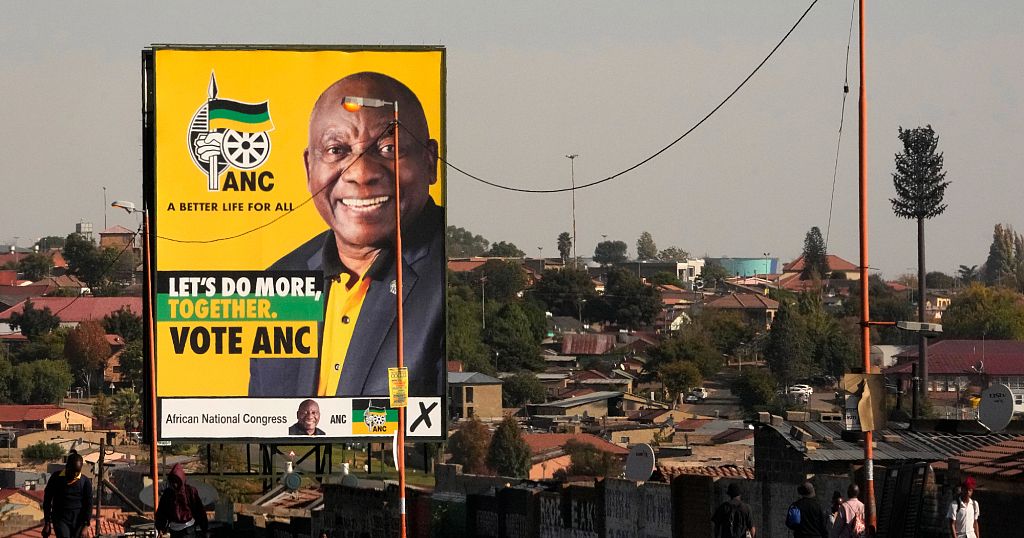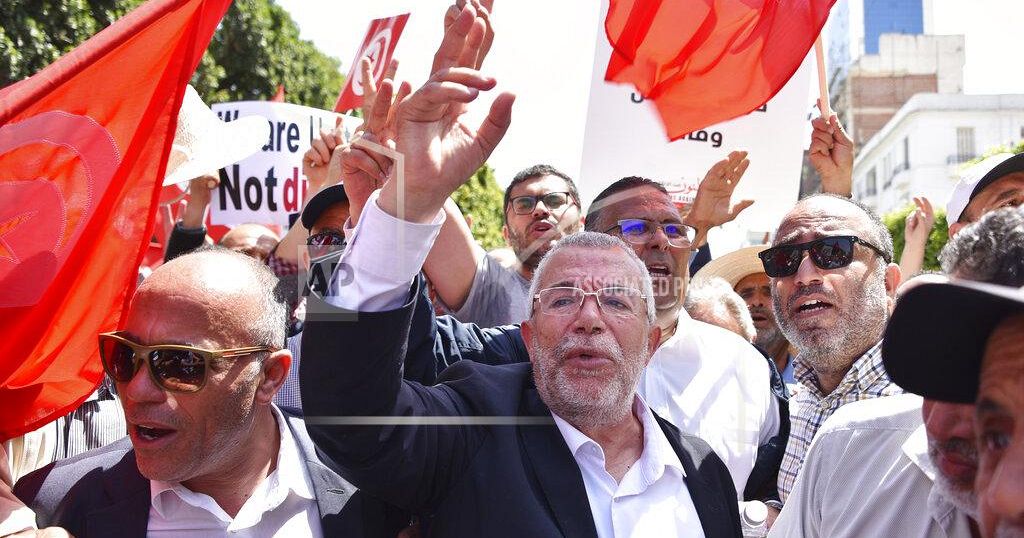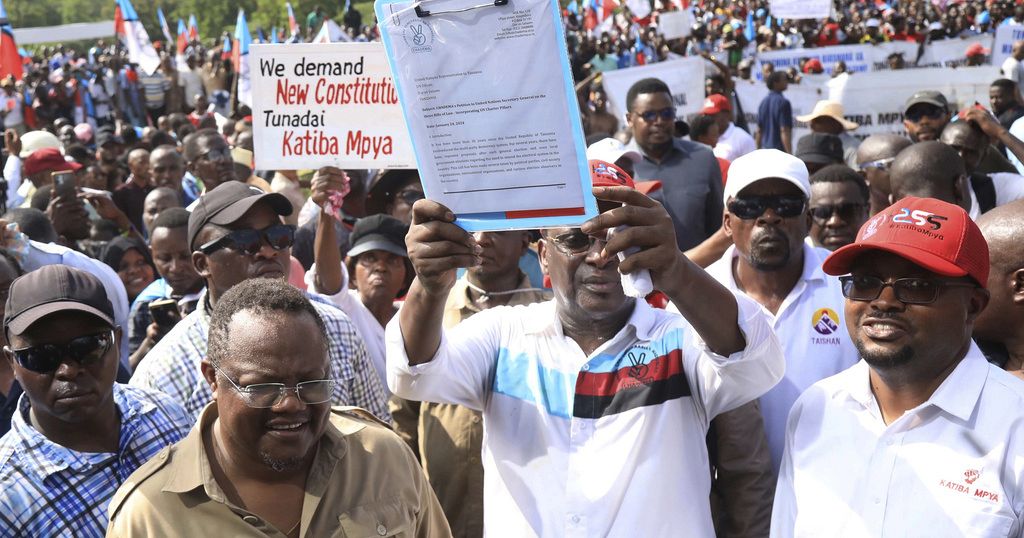Africa
How technology can support more sexual assault survivors in South Sudan

A possible new technology may help survivors of sexual assault in South Sudan, but it’s not without its challenges.
After being gang-raped by armed men while collecting firewood, a 28-year-old tried in vain to get help.
Some clinics were closed, others told her to return later and she had no money to access a hospital.
Five months after the assault, she lay on a mat in a displacement camp in South Sudan’s capital, rubbing her swollen belly.
“I felt like I wasn’t heard… and now I’m pregnant,” she said.
The Associated Press does not identify people who have been raped.
Sexual assault is a constant risk for many women in South Sudan.
Now, one aid group is trying to bridge the gap with technology, to find and help survivors more quickly.
But it’s not easy in a country with low connectivity, high illiteracy and wariness about how information is used.
Five months ago, an Israeli organization in South Sudan piloted a chatbot it created on WhatsApp.
It prompts questions for its staff to ask survivors of sexual assault to anonymously share their experiences.
The information is then put into the phone, and the bot immediately notifies a social worker when there’s a case, providing help to the person within hours.
IsraAID said the technology improves communication.
Papers can get misplaced and information can go missing.
When colleagues document an incident, she’s notified by phone and told what type of case it is.
Tech experts said technology can reduce human error and manual file keeping, but organizations need to ensure data privacy.
IsraAID said its data is encrypted and anonymized. It automatically deletes from staffers’ phones. In the chatbot’s first three months in late 2024, it was used to report 135 cases.
When the 28-year-old was raped, she knew she had just a few days to take medicine to help prevent disease and pregnancy, she said.
One aid group she approached scribbled her information on a piece of paper and told her to return later to speak with a social worker.
When she did, they said they were busy. After 72 hours, she assumed it was pointless. Weeks later, she found she was pregnant.
IsraAID found her while doing door-to-door visits in her area. At first, she was afraid to let them put her information into their phone, worried it would be broadcast on social media. But she felt more comfortable knowing the phones were not personal devices, thinking she could hold the organization accountable if there were problems.
She’s one of tens of thousands of people still living in displacement sites in the capital, Juba, despite a peace deal ending civil war in 2018. Some are afraid to leave or have no homes to return to.
The fear of rape remains for women who leave the camps for firewood or other needs.
Some told the AP about being sexually assaulted.
They said there are few services in the camp because of reduced assistance by international aid groups and scant government investment in health.
Many can’t afford taxis to a hospital in town.
U.S. President Donald Trump’s recent executive order to freeze USAID funding during a 90-day review period is exacerbating the challenges.
Aid groups have closed some services including psychological support for women, affecting tens of thousands of people.
Technology isn’t widely used by aid groups focused on gender-based violence in South Sudan.
Some organizations say that, based on survivors’ feedback, the ideal app would allow people to get help remotely.
The stigma surrounding sexual assault further complicates efforts to get help in South Sudan.
It’s especially hard for young girls who need to get permission to leave their homes, according to a gender-based violence lead at the International Rescue Committee.
But South Sudan has one of the lowest rates of mobile access and connectivity in the world, with less than 25% of market penetration, according to a report by GSMA, a global network of mobile operators.
People with phones don’t always have internet access, and many are illiterate.
Some survivors of sexual assault say they just want to be heard, whether by phone or in person.
One 45-year-old man, a father of 11, said it took years to seek help after being raped by his wife after he refused to have sex and said he didn’t want more children they couldn’t afford to support.
It took multiple visits by aid workers to his displacement site in Juba before he felt comfortable speaking out.
Africa
Unprecedented trial for apartheid atrocities opens in South Africa

A significant step by South Africa’s legal system in confronting the atrocities of the country’s dark political past.
A judge this week approved the trial of two apartheid-era police officers for their involvement in the 1982 assassination of three student activists.
The prosecution is unprecedented. Until now, no individual had been held accountable for the crime of apartheid.
The case centers around three young freedome fighters killed in an explosion in 1982. The victims were part of a resistance movement opposed to the apartheid regime which enforced White-only rule and domination over the Black majority.
Experts say the trial could open the door for others.
Also this week, South Africa reopened an investigation into the death Albert Luthuli, a former president of the African National Congress (ANC) and Nobel Peace Prize laureate, who was killed in 1967.
The prosecuting authority seeks to have the findings of previous inquests into Luthuli overturned.
The authorities at the time had concluded that Luthuli’s death the result of an accident.
The development comes more than 30 years since South Africa became a democracy and after a Truth commission unearted numerous atrocities.
Africa
Tunisia jails opponents, critics of President Saied

Tunisia on Friday handed opponents of President Kais Saied lengthy jail terms after convicting them of plotting against state security.
Issam Chebbi and Jawhar Ben Mbarek of the opposition National Salvation Front coalition, as well as lawyer Ridha Belhaj and activist Chaima Issa, were sentenced to 18 years behind bars, their lawyer said.
Businessman Kamel Eltaief received the harshest penalty of 66 years in prison.
They are among forty people, including high-profile politicians, businessmen and journalists, who who were being prosecuted on security and terrorism charges.
Critics say the charges lacked merit, and only served to consolidate Saied’s power grab.
The president won re-election virtually unchallenged last year after the jailing or disqualification on flimsy grounds of his opponents.
Saied has ruled mostly by decree since dismissing parliament in 2022 and promulgating a revised constitution giving himself wideranging powers in 2023.
Africa
Tanzania opposition says jailed leader not seen by family, lawyers

Tanzania’s main opposition party said it had failed to get access to its leader who is in detention on treason charges.
CHADEMA said Friday that the family and lawyers of Tundu Lissu had failed to see him at a Dar es salaam jail where he had been kept since his arrest on April 9.
In a statement, the party said it held the Tanzanian government and Prisons Service responsible ble for Lissu’s safety.
The Prisons Service quickly denied that Lissu had been moved from jail.
In a statement, the agency dismissed CHADEMA’s concerns as misinformation.
“We would like to inform the public that Tundu Lissu is safe and he is still detained at Keko Prison in Dar es Salaam according to the country’s laws and procedures,” the Service said in a statement.
Lissu came second in Tanzania’s 2020 presidential election. Last week, he was arrested and later charged with treason after a speech demanding election reforms.
Prosecutors said the speech called for an uprising.
With another presidential vote on the horizon, critics say President Samia Suluhu Hassan’s government has ramped repression against the opposition.
This week, the election commission banned CHADEMA from taking part in elections after the party refused to sign a document pledging to obey the commission’s orders.
-

 Education1 day ago
Education1 day agoHarvard’s battle with the Trump administration is creating a thorny financial situation
-

 Lifestyle2 days ago
Lifestyle2 days agoThousands of pilgrims trek through New Mexico desert to historic adobe church for Good Friday
-

 Lifestyle1 day ago
Lifestyle1 day agoSweets from the sky! A helicopter marshmallow drop thrills kids in suburban Detroit
-

 Sports2 days ago
Sports2 days agoAaron Rodgers ‘not holding anybody hostage’ as he decides his future, retirement a possibility
-

 Sports2 days ago
Sports2 days agoManchester United pulls off ‘miracle’ Europa League victory against Lyon
-

 Africa2 days ago
Africa2 days agoTrump administration plans to shut down nearly 30 U.S. embassies — over half in Africa
-

 Conflict Zones1 day ago
Conflict Zones1 day agoTrump says US may ‘pass’ on helping end war if Russia, Ukraine resist deal | Russia-Ukraine war News
-

 Lifestyle2 days ago
Lifestyle2 days agoFans of Superman relate to comic’s religious and ethical themes




